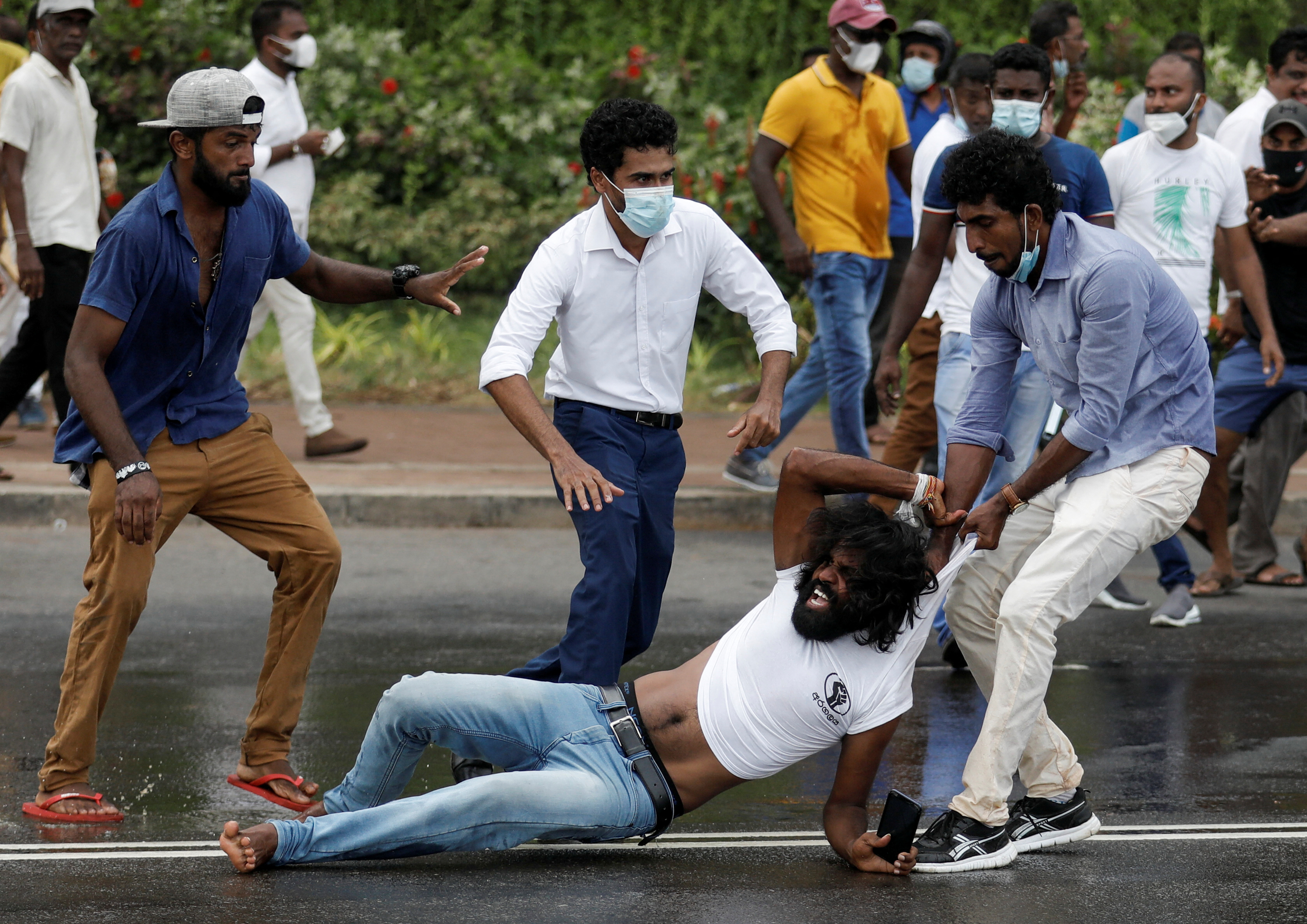
Sri Lanka’s Prime Minister Mahinda Rajapaksa has resigned after protests over the island nation’s worsening economic crisis turned deadly.
In a statement on Monday, his office said he was quitting in order to help form an interim, unity government, following weeks of sometimes violent protests across the country over shortages of fuel and other vital imports and spiraling prices.
Earlier, a government official said Rajapaksa, who has dominated Sri Lankan politics for nearly 20 years and whose government crushed the Tamil Tigers to bring an end to a long civil war, has sent his letter of resignation to the president.
President Gotabaya Rajapaksa is the prime minister’s younger brother.
Rajapaksa’s spokesman Rohan Weliwita said the 76-year-old leader sent his resignation to clear the way for a “new unity government” suggested by the president to fight the country’s worst economic crisis since independence from the British rule in 1948.
Rajapaksa’s resignation comes hours after his party’s supporters stormed a major protest site in the capital Colombo, attacking anti-government demonstrators and clashing with police who used tear gas and water cannon to drive them back.
At least three people, including an MP, have been killed and more than 150 wounded in the clashes.
“The violence unleashed by Rajapaksa’s supporters really started this day of violence,” Al Jazeera’s Minelle Fernandez.

A curfew has been imposed across the island nation of 22 million people after the violence.
Protests against the powerful Rajapaksas have raged for weeks, with thousands demanding the influential family quit for mishandling the economy.
Al Jazeera’s Fernandez, reporting from Colombo, said the protesters are “unlikely to be appeased” by the prime minister’s resignation.
“Sacrificing Prime Minister Mahinda Rajapaksa for the president’s survival is not something that is going to go down easily with the protesters,” she said.
“People actually have reached the top of their tolerance and are not willing to take anymore whether it be in the form of intimidation or the state of emergency imposed a couple of days ago. It does not seem to be any effect on people, who say ‘enough is enough’. They are going to take a stand until Rajapaksas and the government resign,” she said.

Earlier on Monday, hundreds of ruling party supporters rallied outside the prime minister’s official residence before marching to an anti-government protest site outside the presidential office.
Police had formed a line of personnel ahead of time on the main road leading towards the site but did little to stop the government supporters from advancing, according to witnesses.
The government supporters, some armed with iron bars, attacked anti-government demonstrators at the “Gota Go Gama” tent village that sprang up last month and became the focal point of the nationwide protests.
Police used dozens of tear gas rounds and water cannon to break up the confrontation, the first major clash between pro-and anti-government supporters since the protests began in late March.
At least 78 injured people were hospitalised, Colombo National Hospital spokesman Pushpa Soysa told the AFP news agency.
“Strongly condemn the violent acts taking place by those inciting & participating, irrespective of political allegiances,” President Rajapaksa said in a tweet.
“Violence won’t solve the current problems.”
The US ambassador to Sri Lanka condemned “the violence against peaceful protestors today, and call on the government to conduct a full investigation, including the arrest & prosecution of anyone who incited violence”.
‘Bankrupt nation’
Hit hard by the pandemic, rising oil prices and tax cuts, Sri Lanka has as little as $50m of useable foreign reserves, finance minister Ali Sabry said last week.
The government has approached the International Monetary Fund for a bailout and will begin a virtual summit later on Monday with officials from the multilateral lender aimed at securing emergency assistance.
Facing escalating anti-government protests, Rajapaksa’s government last week declared a state of emergency for the second time in five weeks, but public discontent has steadily simmered.
Long queues for cooking gas seen in recent days have frequently turned into impromptu protests as frustrated consumers blocked roads.
Domestic energy companies said they were running low on stocks of liquid petroleum gas mainly used for cooking. Sri Lanka needs at least 40,000 tonnes of gas each month, and the monthly import bill would be $40m at current prices.
“We are a bankrupt nation. Banks don’t have sufficient dollars for us to open lines of credit and we cannot go to the black market. We are struggling to keep our businesses afloat,” Laugfs company’s chairman W H K Wegapitiya said.







